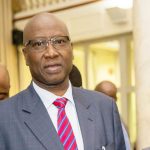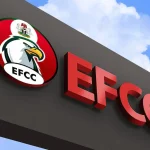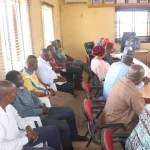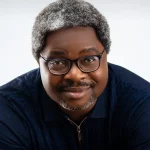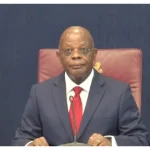...To get all news updates, Join our WhatsApp Group (Click Here)
Also Join our WhatsApp Channel (Click Here)
When my friend, Dr. Dapo Abiodun, told me he wanted to stand for office as Governor of Ogun State I have to admit I was very concerned and said as much to him. I didn’t understand why someone who had achieved his level of success in the oil and gas industry would want to move into politics. Anyone who was familiar with the Ogun State political landscape at the time knew that he had a very difficult fight ahead of him. Almost two years later, I have to doff my hat to Governor Dapo Abiodun.
As I had envisaged at the start, the road to the governorship was indeed a difficult and rocky one but in hindsight, I am pleased that he embarked upon it. Some would say that the fact that he was sworn in as governor on his birthday speaks to the fact that he was destined for the role. Unsurprisingly, when I expressed my concerns about his political ambitions to him he stood his ground firm based on his strong conviction on the role he believed he could play in the development of his beloved Ogun State. I now take it as a lesson to us all that where the vision is compelling, the fight is undoubtedly worth it.
A year after being sworn into office, I am very pleased to see that the drive and the determination that took Abiodun into office is slowly bringing transformation to Ogun State. As we all know from bitter experience, getting into office is one thing; executing on promises, however, is quite another matter.
A key pillar to Abiodun’s transformation strategy is Ogun State’s proximity to Lagos State, the economic capital of the country. Due to the gradual urban sprawl, there are areas of Ogun state already wrongly seen as being part of Lagos State. Instead of sulking, the governor is seeking to capitalise on this by working to position Ogun State as a second economic hub. The five-year Ogun State Economic Transformation Project (OGSTEP) developed by the governor and his team is a comprehensive effort that is designed to propel the state into a high-income one that is both inclusive and sustainable.
The programme is expected to lift Ogun State’s gross national income and raise per capita income, meeting the World Bank’s threshold for high income states. A key anchor of OGSTEP is to foster greater private sector participation in the State’s economy with a particular focus on improving the business-enabling environment, strengthening agri-food value-chains and upgrading the skills development and capacity building sectors.
I strongly believe that the current COVID-19 pandemic has brought to the fore the fact that “government alone cannot do it.” The only way that Nigeria as a whole, and Ogun State specifically, will make the necessary progress is for government, private sector and non-governmental organisations (NGOs) to work collaboratively together to drive things forward. With this in mind, the intention is that OGSTEP will also be used to implement reforms to the public sector in order to facilitate the smooth implementation of the state’s social and economic plans.
OGSTEP is still in its implementation phase (full-blown project implementation is expected to commence in October 2020) but it’s clear that the governor and his team have already started making good progress on the key focus areas – infrastructure, social development, education, youth empowerment & employment, and agriculture.
On the infrastructure front, the Ogun State government has commenced the construction of some major state roads; the roads from Owode to Idiroko, Osi Otta to Ikola, and Ijebu-Ode to Epe, to name a few. Also, given the importance it holds to the state’s economy, it has also undertaken palliative repair works along the Lagos-Sango-Abeokuta dual carriageway. Given his stated strategy of benefiting from the state’s proximity to Lagos, it only makes sense that there is easy access between the two capital cities.
Still on infrastructure, the government has also successfully restored portable water supply by the Water Corporation to Abeokuta and 14 other communities, including Ikenne. This effort has added 7,000 more homes to the state’s water supply system. I think this is particularly timely given the current pandemic. We’ve all heard so much about the importance of hand-washing to reduce the spread of the pandemic but this becomes “grammar” when people have no access to water. The state still has a way to go to achieve 100% water connectivity but this has definitely been a big step in the right direction.
The second key focus area of social development is a hydra-headed beast; one that cannot be tackled in just a year. Again, for me, the key thing is ensuring that the state is on the right trajectory; not just showing intent but actually beginning to take concrete steps to address the myriad of issues.
First and foremost, especially at a time like this, we must look at healthcare. In the recent past, the governor has installed a molecular lab at Olabisi Onabanjo University Teaching Hospital (OOUTH) as well as commissioning five well-equipped isolation centres in the state. I hope to God that not all the isolation centres will end up being required but this is definitely one area where it is better to be safe than sorry. I read a quote mid-March as the pandemic started spreading aggressively across the globe that, “Only time will tell whether you over-reacted or under-reacted but better to find you did the former than the latter.” With this in mind, Abiodun also increased the payment to health workers by 200%, and provided a special risk allowance and life insurance for personnel treating COVID-19 patients.
To bolster the fight against the pandemic, qualified private hospitals have also been identified and enrolled as incident centres to widen the coverage of COVID-19 support at this time. On the side of the populace, the government has been donating protection masks and distributing palliatives to the people to reduce the risk of contagion and to alleviate the suffering caused by the pandemic.
From a security standpoint, the governor has procured 100 ‘4X4’ patrol vehicles and 200 motorcycles to aid the security officers in their work. The reality is that there can be no serious policing without mobility. We all know someone (even if not our own personal experience) who has called out the emergency services only to be left waiting for an inordinate amount of time as they make their way to the incident location. Thankfully that narrative is slowly changing in Ogun State.
In response to the highly contentious farmer/herdsman issue, the state has inaugurated cattle herders and farmers’ conflict resolution and peacekeeping committee. This rightly moves the conversation away from the usual blame game, to resolving the arising issues on both a holistic and a case by case basis.
Regarding education, Abiodun and his team have also successfully rehabilitated 236 schools over the year – one school per ward, across the state. Given the current social distancing realities, the state has also collaborated with Microsoft to design a remote learning system for its education sector, Ogun Digital Classroom, for primary and secondary schools on OGTV, DSTV and GoTV from Mondays to Fridays. We are all fast reaching the conclusion that aside from the loss of lives, one of the saddest outcomes of the pandemic is the significantly increased number of out-of-school children. Rather than whining about the situation, we need to focus on developing practical and sustainable solutions to the problem.
As a step towards addressing the lingering unemployment issue (which we all know eventually leads to a security issue), the governor approved the absorption of over 1,000 Administrative Staff College of Nigeria (ASCON) 2018 entrants into the civil service and the payment of nine months’ salary arrears. The state also successfully negotiated a new minimum wage with minimal contention; no mean feat. In addition, the state has undertaken a series of youth empowerment programmes including a graduate unemployment youth scheme and the distribution of palliatives.
Last, but by no means least, is the governor’s work in the agricultural sector. I for one have read with increasing concern, several articles about food security over the last few weeks. With everything going on in Nigeria in particular, and the world as a whole, the country can simply not afford a food security crisis. The human and economic cost is unthinkable. It was, therefore, a huge relief to learn of the various programmes that the state has undertaken in the agriculture sector in the last year. The initiatives include the commissioning of Ogun State Agricultural Technology and Innovation Centre, the facilitation and distribution of funding and inputs to 3,500 cassava farmers, and putting frameworks in place to attract private sector investment to the sector, amongst others.
So a year into his tenure as the executive governor of Ogun State, I am pleased with my dear friend, Governor Abiodun, because not only did he succeed in winning the hearts and minds of his Ogun State brothers and sisters, he is also making good progress in transforming their lives. My prayer for him is that just as he has achieved great success in his first year, may God grant him the wisdom and strength to continue to do right by his people.
BY SEGUN SENBANJO
You can get every of our news as soon as they drop on WhatsApp ...To get all news updates, Join our WhatsApp Group (Click Here)
Also Join our WhatsApp Channel (Click Here)






